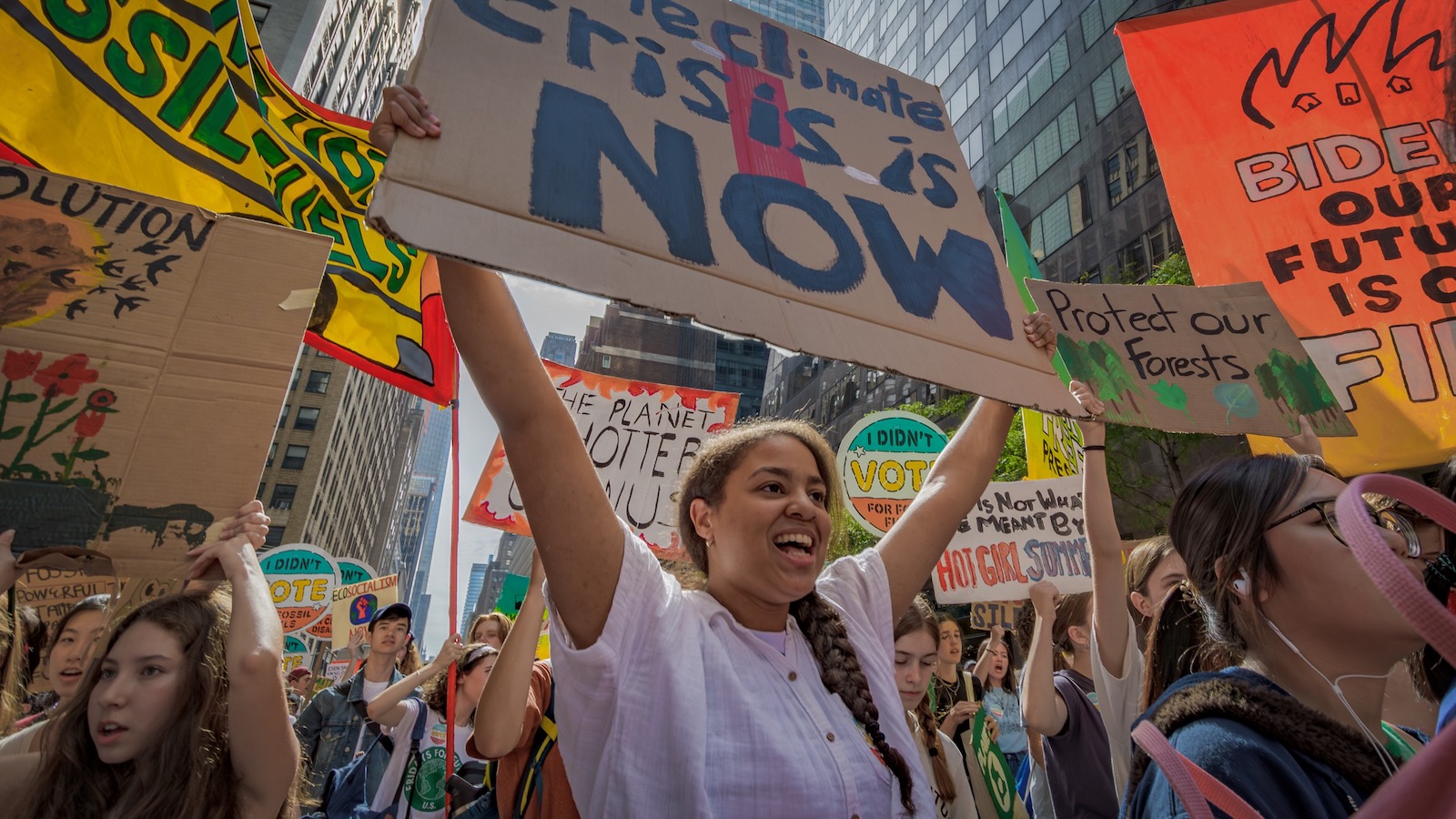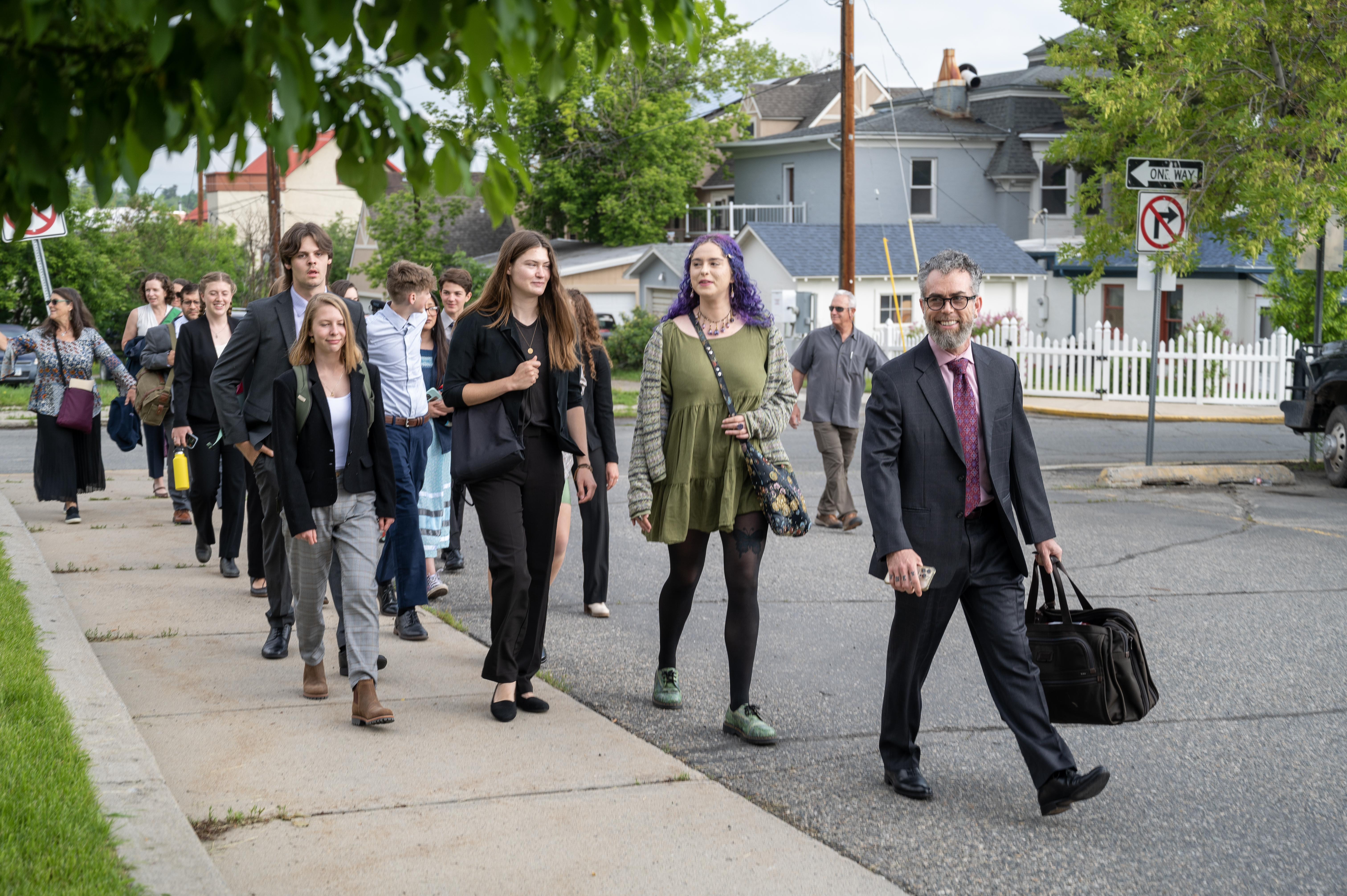California’s wildfire season gets worse every year for Avroh S. The smoke and grime that envelopes the 14-year-old’s home in Palo Alto heralds coughing fits and congestion that make it difficult to concentrate. Lately, he’s been prone to nosebleeds; he recently had one so severe it required cauterizing a blood vessel. He’s also an environmentalist who feels a deep and spiritual connection with nature. His passion has escalated from starting a nature club at school to suing the Environmental Protection Agency because, he says, the fight to save the climate is a fight that ties his health to that of the natural world.
Avroh is one of 18 young people who have joined the latest in a series of lawsuits filed on behalf of youth who are struggling with the physical and emotional effects of the climate crisis. They accuse the EPA of failing to adequately protect children nationwide from environmental catastrophe, a novel argument in environmental justice. It also claims the agency has discriminated against them by discounting the economic value of their lives and their futures as it decides how to regulate climate pollution.
Genesis B. v. the United States Environmental Protection Agency, filed on their behalf by the nonprofit environmental advocacy group Our Children’s Trust, asks a federal court to hold the EPA accountable for what the plaintiffs consider negligence in violating “their constitutional fundamental right to life and equal protection under the law.” It also seeks clarification on the status of children as a protected legal class in the United States, claiming that environmental regulations typically disregard their specific needs.
“We are experiencing what no one should have to experience,” Avroh, who is identified only by his first name due to his age, said in a statement. “We’re facing constitutional negligence. We’re challenging the EPA’s failure to protect us. The air we breathe has become a casualty of their opposition.”
The EPA has for decades “known that allowing climate pollution would harm children, yet it has intentionally allowed the U.S. to become one of the world’s biggest contributors to climate change,” Our Children’s Trust said in a statement.
Many of the plaintiffs suffer from asthma, which had been linked to toxic exposures. Increasingly severe wildfires throughout the West compound their health issues. That, the suit states, leaves many of them unable to enjoy the same quality of life as their peers, because they cannot pursue the outdoor activities and team sports young people typically enjoy.
The EPA, according to attorneys for Our Children’s Trust, has recognized the unique vulnerability of young children to climate change and environmental toxicity. “Children can be at a greater risk to environmental hazards due to unique activity patterns, behaviors, and biology,” the agency’s 2021 Policy on Children’s Health states.
According to the Center for Disease Control, children are immensely more vulnerable to pollution than adults, and not only because of their smaller size. Children consume more food and water per body weight than adults, they more often touch their eyes and mouths, and their bodies are not as adept at breaking down pollutants. Particulates like those released during wildfires can cause lasting cognitive impairment. The earlier in life, and the more repeatedly, toxic exposure occurs, the more likely a person is to develop chronic health issues and deadly diseases like cancer. It’s also a leading cause of childhood mortality; in 2016, 600,000 deaths of people younger than 15 were attributed to air pollution.
This is not the first time a federal lawsuit has revolved around children — that is, after all, how the groundbreaking desegregation case Brown v. Board of Education was structured. It’s also not the first environmental lawsuit against the EPA, but it is unique in that its language focuses on the particular environmental vulnerability of children.
“Analysis like equal rights or due process [is] very oriented toward adults,” said Phil Gregory, a lawyer working with Our Children’s Trust on the case. Gregory refers to the EPA’s analysis of environmental harm as a “discount-rate analysis” — adults take the highest priority, with children and future generations largely an afterthought.
“The only way youth have an effective voice in our federal system is through the courts,” he said.
This approach may have some international backing; the U.N. recently affirmed children’s right to a clean, healthful environment, in line with international human rights law.
Last June, in the similar case Held v. Montana, 16 youth accused the state of Montana, through its fervent support of the fossil fuel industry, of violating the state constitution’s provision that all residents have an inalienable right to a clean and healthy environment. The kids won in a historic first. In August, 14 youth in Hawaiʻi suing the state Department of Transportation on similar grounds learned that the case will go to trial. These successes leave Gregory hopeful that precedents are being set — with more lawsuits running concurrently in Utah, Virginia, and Florida.
The judge in the Held case issued a declaratory judgment calling the government’s conduct unconstitutional. Gregory hopes to see a similar judgment against the EPA, which the suit alleges has presided over a massive increase in fossil fuel pollution during its 50-year tenure and, thus, has failed future generations.
Michael Burger, a law professor at Columbia University, said that is a thorny question for the EPA, which is subject to changes in administration, and is, he said, “severely constrained by the Supreme Court.” However, he is hopeful that such a judgment, while not an injunction or other more forceful maneuver, could push government toward action. “I don’t think it’s just symbolic,” said Burger. “I think a declaration of what the law is and where the government is falling short would be a great deal on many fronts.”





